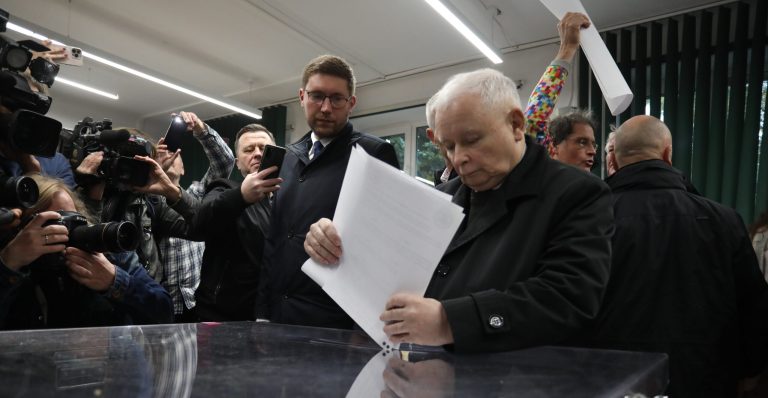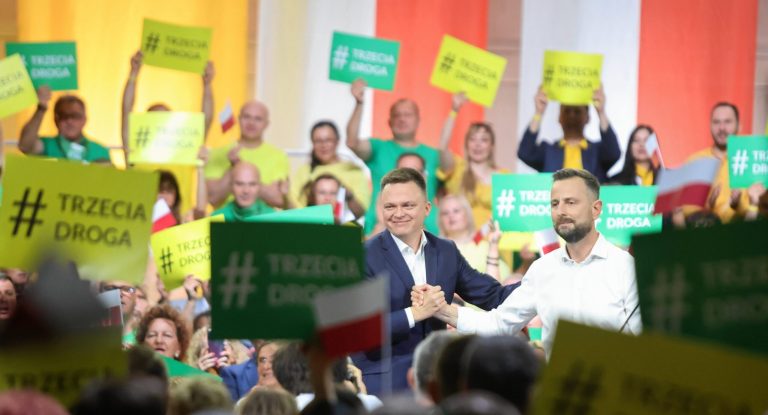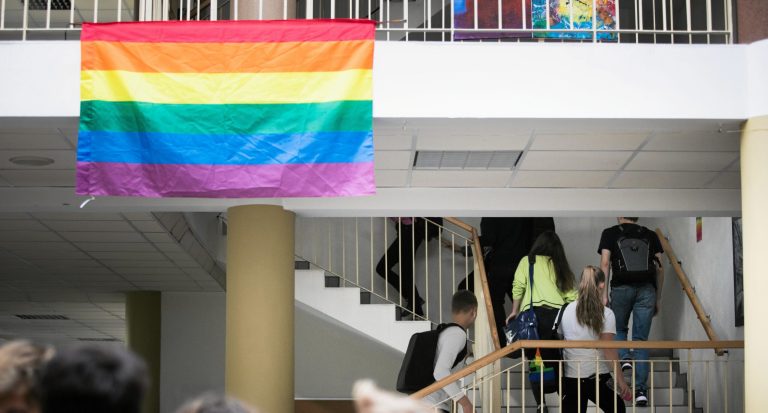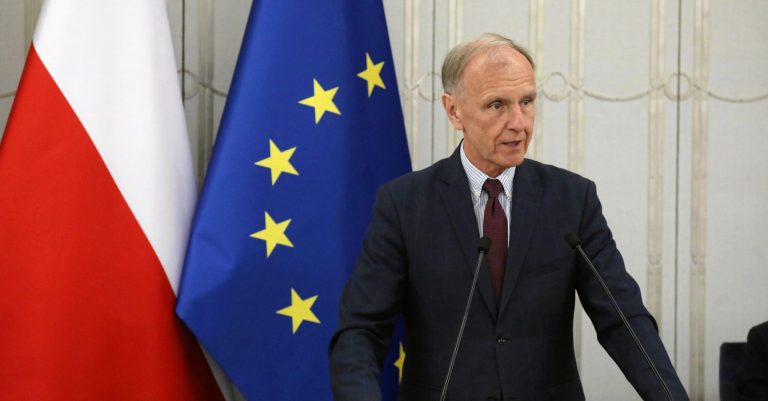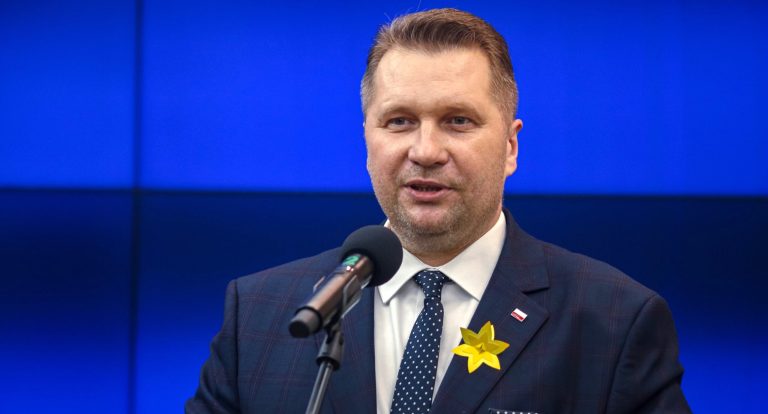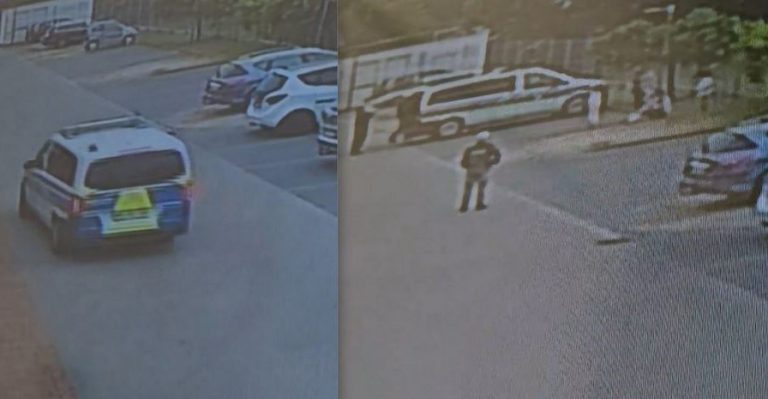Law banning glorification of Ukrainian nationalist Bandera proposed by Polish opposition
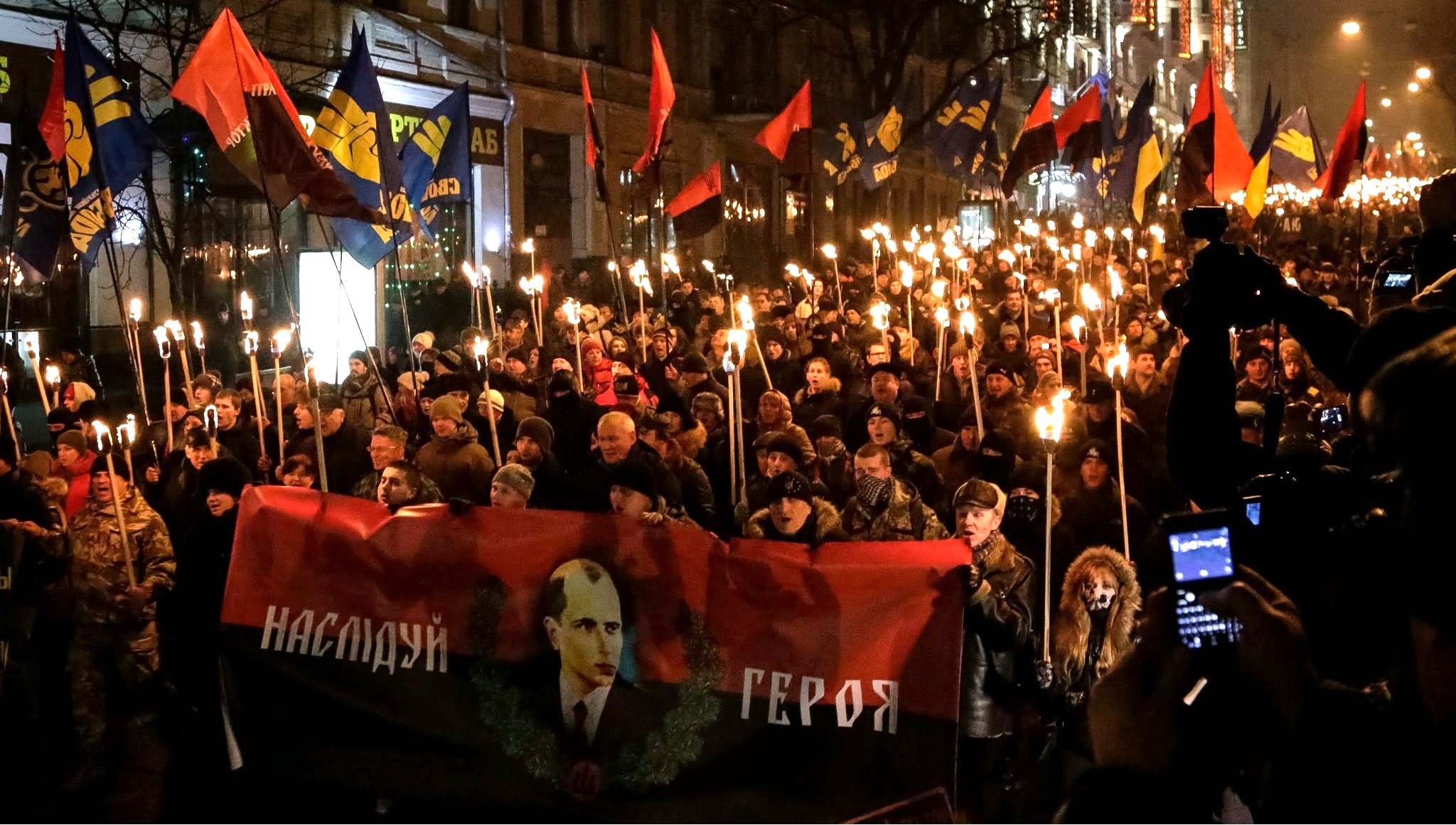
Keep our news free from ads and paywalls by making a donation to support our work!
Notes from Poland is run by a small editorial team and is published by an independent, non-profit foundation that is funded through donations from our readers. We cannot do what we do without your support.
Poland’s main opposition party, the national-conservative Law and Justice (PiS), has submitted a bill to parliament that would ban the propagation of “Banderism”, meaning glorification of historical Ukrainian nationalist leader Stepan Bandera.
The law would place Banderism alongside Nazism, fascism and communism, propagation of which is already punishable under Poland’s criminal code by up to three years in prison.
“Just as we do not allow the glorification of Hitler, we do not want to allow Ukrainians in Poland to glorify Bandera,” said PiS MP and former education minister Przemysław Czarnek. Ukrainians are by far Poland’s largest minority, with a population numbering between one and two million.
PiS proponuje zmiany w ustawie o IPN. „Nie chcemy pozwalać, żeby Ukraińcy gloryfikowali Banderę”.https://t.co/KdUyyYG6Ea
— WPROST.pl (@TygodnikWPROST) December 4, 2024
“Banderism was an ideology that was used as a justification for the Volhynia genocide committed against Poles by Ukrainian nationalists during World War Two,” added Mariusz Błaszczak, deputy leader of PiS and head of its parliamentary caucus, announcing the proposed legislation in parliament.
“We believe that Banderism and Banderite symbols should not be propagated,” he declared, before urging the speaker of the lower-house Sejm, Szymon Hołownia, to begin work on the proposed legislation during the current parliamentary session.
The Volhynia massacres of 1943-45 saw around 100,000 ethnic Polish civilians – mostly women and children – killed by the Ukrainian Insurgent Army (UPA), a paramilitary force established by Bandera’s Organisation of Ukrainian Nationalists (OUN). Other minorities, in particular Jews, were also targeted.
Bandera continues to be regarded as a national hero by many in Ukraine, with the red-and-black flag associated with him often appearing at marches and sometimes in official contexts. However, in Poland he is widely seen as responsible for genocide.
Polish officials, including the prime minister, have condemned Ukraine’s parliament for commemorating nationalist leader Stepan Bandera on his birth anniversary
Bandera is seen in Poland as responsible for the genocide of ethnic Poles and Jews during WWII https://t.co/YSRrDpTAIc
— Notes from Poland 🇵🇱 (@notesfrompoland) January 2, 2023
“Now is the time for Ukrainians to finally work through this issue of genocide after decades [of failing to do so],” said PiS MP Zbigniew Bogucki, speaking alongside Błaszczak and Czarnek. “This wound can heal only in truth.”
While Poland has officially declared the Volhynia massacres to be a genocide, Ukraine has rejected use of that term. Some Ukrainians also seek to contextualise the killing by pointing to historical mistreatment of Ukrainians by Poles.
The legislation proposed by PiS would amend the current law that criminalises “publicly propagating Nazi, communist, fascist ideology or an ideology calling for the use of violence in order to influence political or social life”. That crime carries a jail term of up to three years.
PiS wants to add to the law the phrase: “…including the ideology of the Organisation of Ukrainian Nationalists Bandera faction (OUN-B) and the Ukrainian Insurgent Army (UPA), which led to genocide in Volhynia and neighbouring regions in 1943-1945”.
“The aim of the proposed change is to prevent the spreading of lies about the crime of genocide in Volhynia and neighbouring regions, as well as to put an end to the glorification of the ideology of the OUN-B and UPA,” reads the justification for the law, quoted by news website Niezależna.
“The harmfulness of impunity for public falsification of history, especially in such a tragic aspect as the act of extermination of, in particular, the Polish, Jewish, Czech, Slovak, Armenian and Ukrainian populations, is beyond doubt,” it adds.
Poland’s foreign ministry has intervened after Ukraine’s ambassador to Germany denied that Ukrainian nationalist leader Stepan Bandera was responsible for the mass murder of ethnic Poles and Jews, and sought to justify his collaboration with Nazi Germany https://t.co/UVoc8Fhicb
— Notes from Poland 🇵🇱 (@notesfrompoland) July 1, 2022
“Today’s Ukraine continues to pursue a historical policy that denies the fact, and in particular the scale, of the genocide committed by the OUN-B and UPA,” continues the justification.
It then points specifically to an incident earlier this year when Ukraine’s then-foreign minister, Dmytro Kuleba, appeared to equate the Volyhnia massacres with the post-war forced relocation of ethnic Ukrainians in Poland.
The justification in PiS’s bill says that Ukraine’s attitude is “all the more glaring, outrageous and harmful” in the context of the “enormous military, material and humanitarian aid” Poland has provided since Russia’s invasion in 2022.
Poland’s foreign minister has called on Ukraine to allow the exhumation of victims of the Volhynia massacres – in which Ukrainian nationalists killed around 100,000 ethnic Poles during WWII – “out of gratitude for what Poland is doing for Ukraine today” https://t.co/lfnuSNi3PX
— Notes from Poland 🇵🇱 (@notesfrompoland) September 4, 2024
The legacy of the Volhynia massacres has long soured relations between two otherwise close allies. Poland has even suggested it could block Ukraine’s accession to the European Union unless the issue is resolved.
However, last week the two countries’ foreign ministers jointly announced “progress” towards resolving one aspect of the dispute, which is the exhumation of the remains of Polish victims buried in Ukraine.
Kyiv, which has previously blocked exhumations, now says there are “no obstacles” to them taking place, although both sides acknowledge that practical details are still being discussed. It therefore remains to be seen whether a genuine breakthrough will emerge.
Speaking today, Czarnek expressed scepticism that large-scale exhumations would be allowed. He warned the government that Poles “do not need any [more] working groups” holding discussions with Ukraine. They want “consent to the applications submitted long ago to exhume the bodies”.
Poland and Ukraine have jointly announced progress towards resolving the thorny issue of exhuming ethnic Poles massacred by Ukrainian nationalists in WWII.
Ukraine says there are “no obstacles” to exhumations and it will “positively consider” requests https://t.co/PZvuwFwZYh
— Notes from Poland 🇵🇱 (@notesfrompoland) November 26, 2024
In 2018, parliament approved a change to Polish law that would have punished denial of crimes committed by “Ukrainian nationalists” between 1925-1950.
It was part of the same legislation – widely labelled the “Holocaust law” in international media – that also made it a crime to falsely attribute German-Nazi crimes to the Polish nation or state.
However, in 2019, Poland’s Constitutional Tribunal overturned the change after finding that the term “Ukrainian nationalists” was not properly defined by lawmakers.

Notes from Poland is run by a small editorial team and published by an independent, non-profit foundation that is funded through donations from our readers. We cannot do what we do without your support.
Main image credit: All-Ukrainian Union/Wikimedia Commons (under CC BY 3.0)

Daniel Tilles is editor-in-chief of Notes from Poland. He has written on Polish affairs for a wide range of publications, including Foreign Policy, POLITICO Europe, EUobserver and Dziennik Gazeta Prawna.

